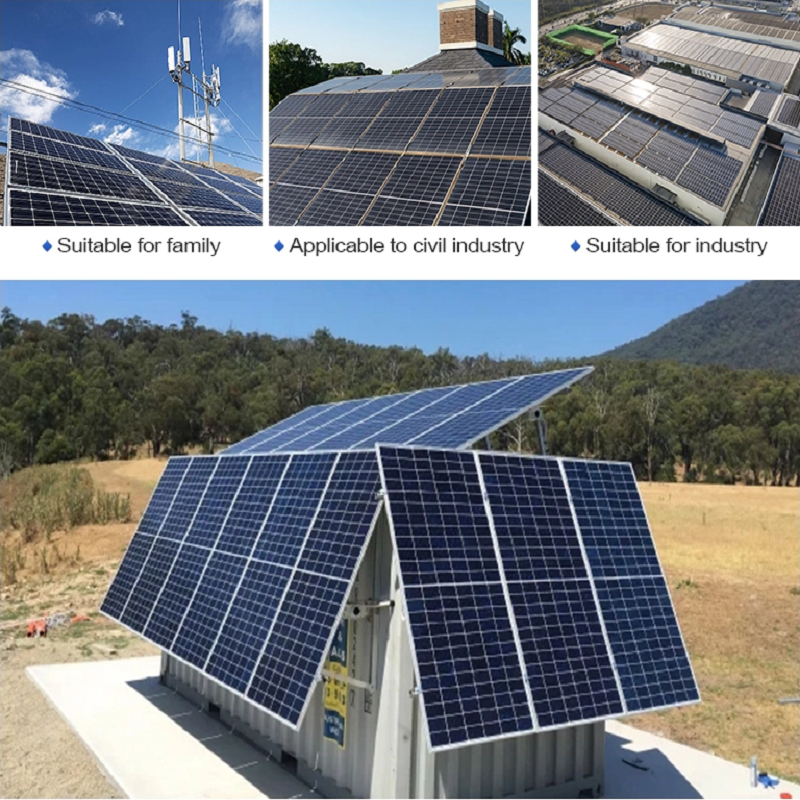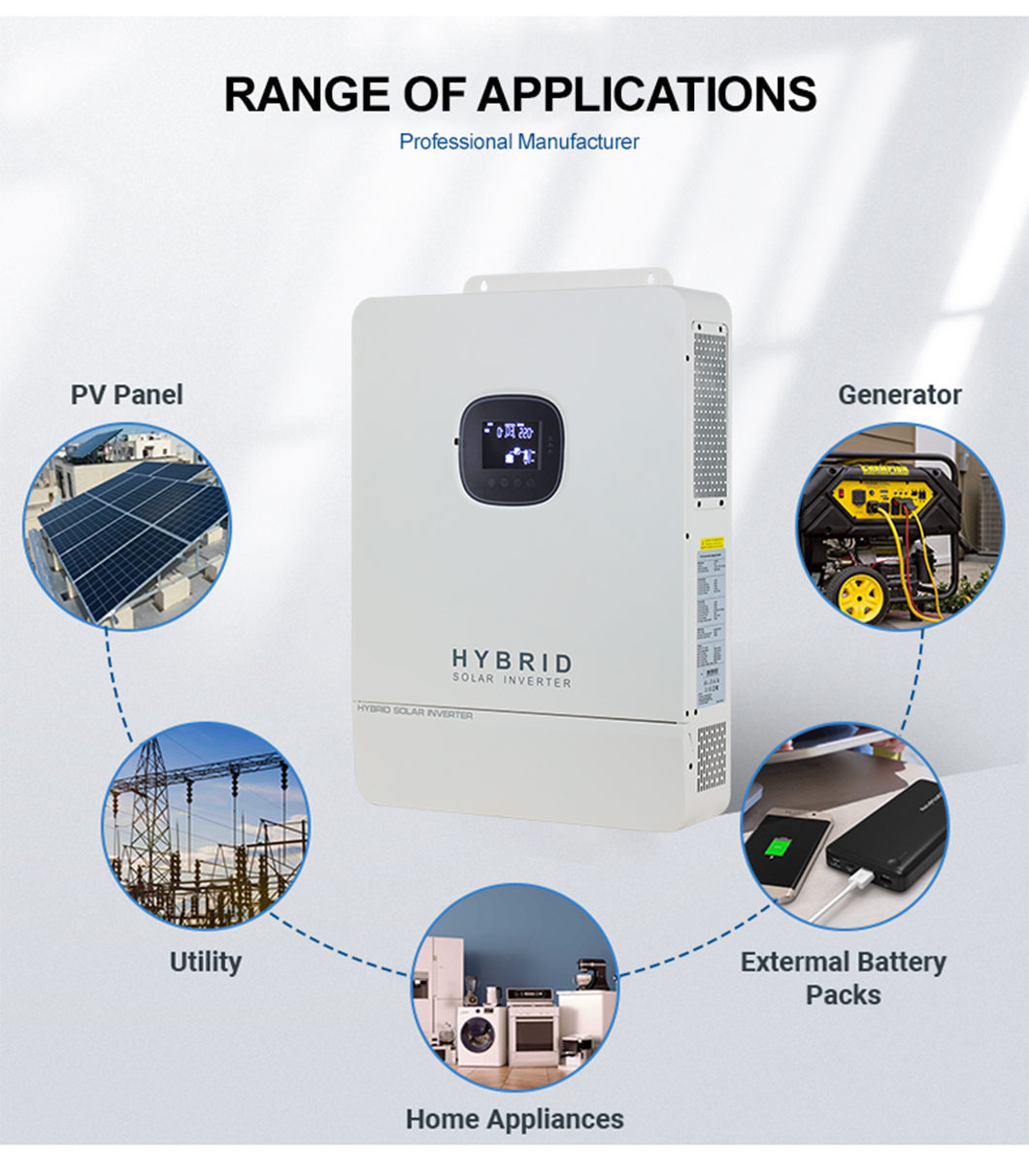Before we dive into the main topic of solar panel costs vs inverter costs, let’s first learn about these components in detail. We will also investigate the various factors that influence the costs of these components.
They are not only the first principal component but also the most expensive component of any solar power system. A solar panel consumes around thirteen percent of the total installation budget. With the market flooded with various options, finding the best solar panel is essential. Some solar panels are cheap, while others are expensive is due to the construction material. Affordable solar panels are less efficient and produce less energy. So, in cheap solar panels vs expensive solar panels, one must always prefer costly panels. This is because they are efficient, and you will need fewer panels to generate the same energy.
Additionally, the cheaper panels degrade much faster over time. This means that their production capacity decreases every year. For instance, they may lose 5-10 percent of their generating capacity after one year. On the other hand, an expensive panel is made from high-quality materials.
The second essential component of the solar energy system is inverters. A solar inverter costs around 6 percent of the total solar installation. Inverters convert direct current into alternating current.
Factors Affecting The Cost of Solar Panels

Solar panels, also known as photovoltaic panels or PV panels, are the primary power producers in a solar power system. They capture sunlight and turn it into electricity. When thinking about the price of solar panels, there are several things to consider:
Types of Panels
There are various kinds of solar panels, like monocrystalline, polycrystalline, and thin-film panels. Monocrystalline panels are the most efficient but tend to be more expensive.
Efficiency of Panels
More efficient panels produce more electricity for a given area, but they can cost more upfront.
Installation Costs
The cost of installing solar panels includes labor, mounting hardware, and electrical stuff. Things like how complex your roof is and how much local labor costs can affect this expense.
System Size
The number of solar panels you need depends on how much energy you use and how much space is available on your roof. Bigger systems need more panels, which can affect the total cost. It further depends on the inverter vs non-inverter setup.
Incentives and Rebates
Sometimes, the government offers incentives, tax credits, and rebates that can cut down the upfront cost of solar panels and make them more affordable.
Quality and Warranty
Higher-quality panels often come with longer warranties and a better history of good performance, which might justify a higher initial cost.
The Cost of Solar Inverters

Solar inverters are essential because they convert the electricity produced by solar panels, which is direct current (DC), into the kind of electricity homes and businesses use, which is alternating current (AC). When you’re looking at the cost of solar inverters, think about these things:
Types of Inverters
There are different kinds of solar inverters, like string inverters, microinverters, and power optimizers. Microinverters are usually more expensive because they optimize each solar panel individually.
Inverter Capacity
How much electricity an inverter can handle affects its price. A bigger inverter can manage more solar panels and produce more electricity, but it also costs more.
Brand and Quality
Well-known and trusted brands usually have solar panel inverter costs on the higher side but may work better and last longer.
Extra Features
Some inverters come with cool features like Wi-Fi connections or built-in power backup. These features can make the inverters with solar panel prices more expensive.
Installation Costs
Don’t forget that the solar panel inverter price itself is just one part of the total cost of a solar power system. Installing it also costs money, including labor and other parts.
Conclusion
When you’re trying to decide if solar panels or inverters are more affordable, you have to think about both in the context of your solar power system. Solar panels are often the biggest part of the upfront cost, but they can save you money in the long run by making electricity. Inverters are important for turning that electricity into something you can use at home.
To make the best decision, it’s smart to talk to solar energy experts. They can look at your needs and give you a price estimate for your solar power system. You should also find out if there are any incentives or rebates in your area that can help you save money.
